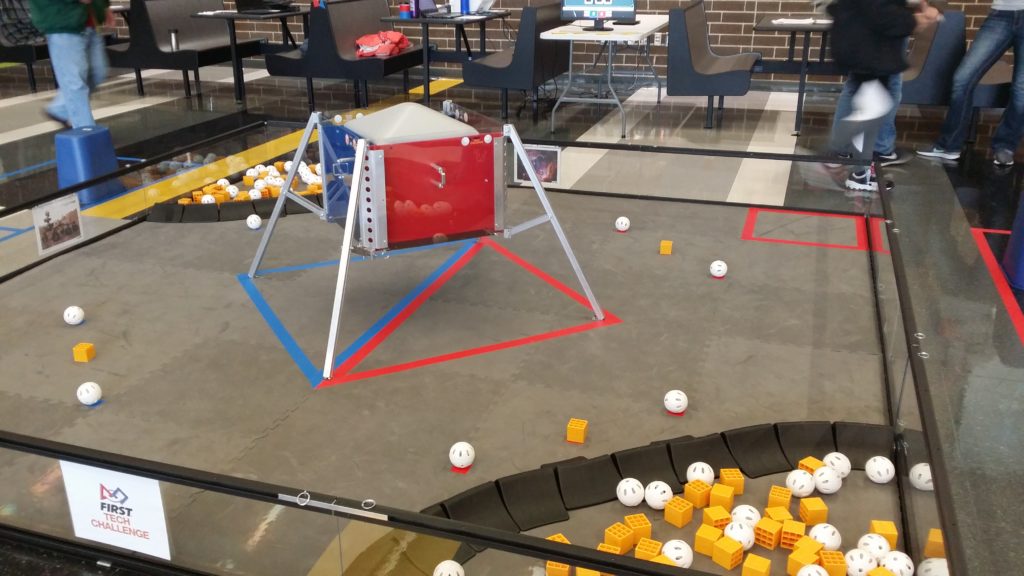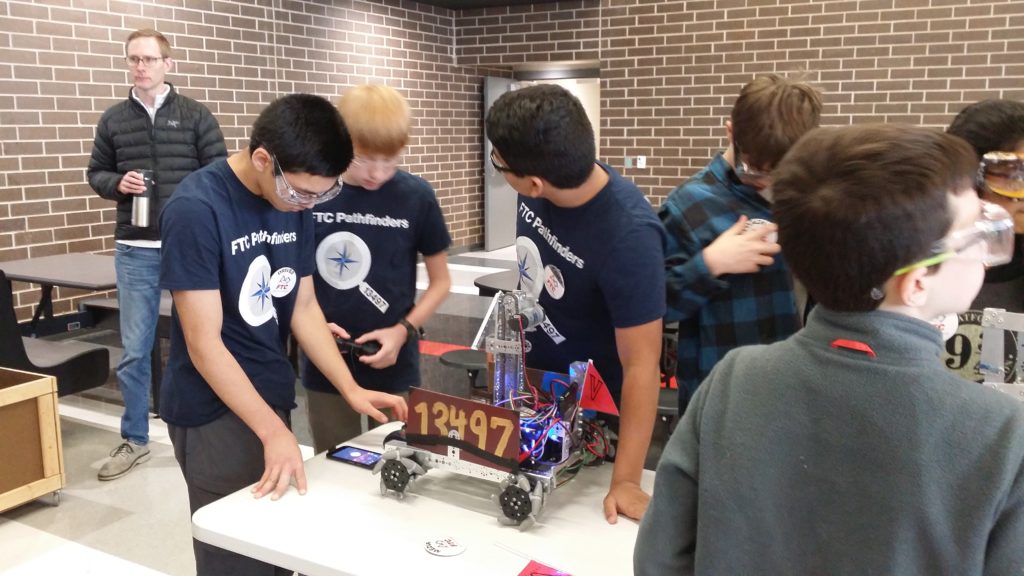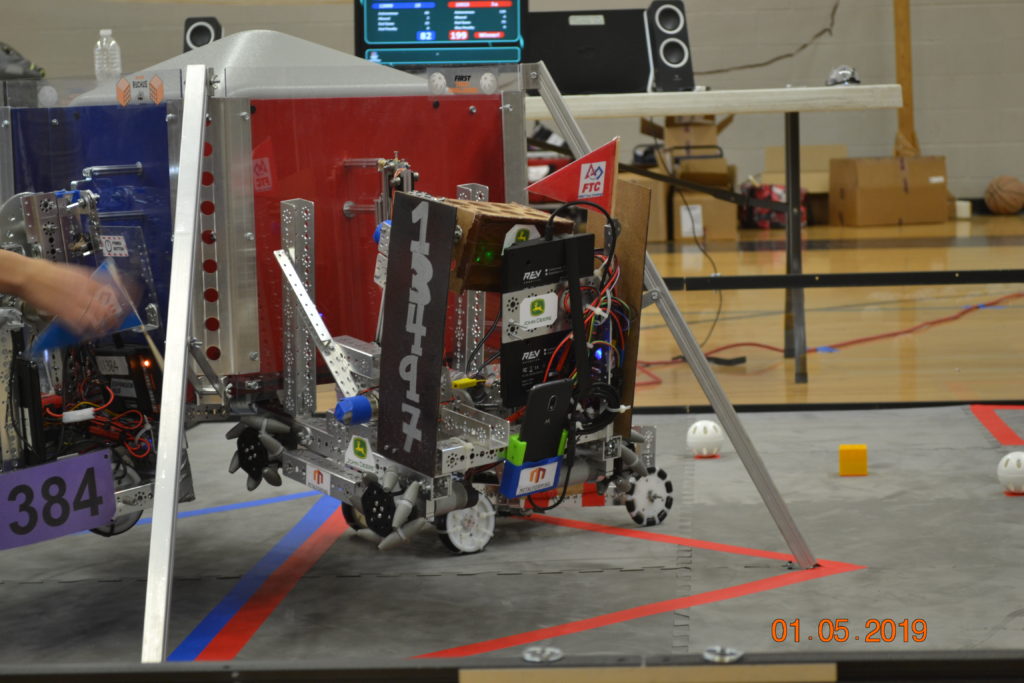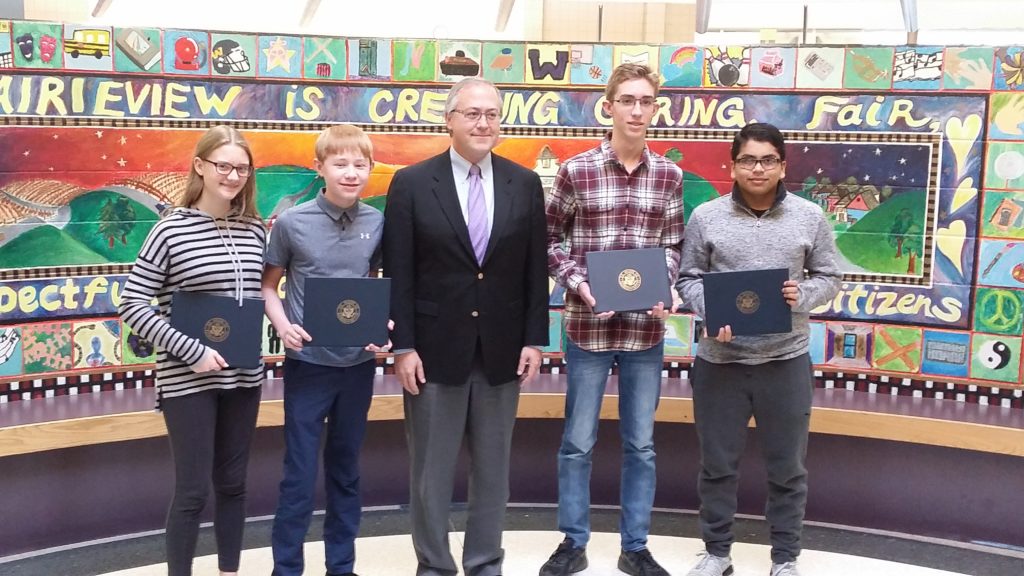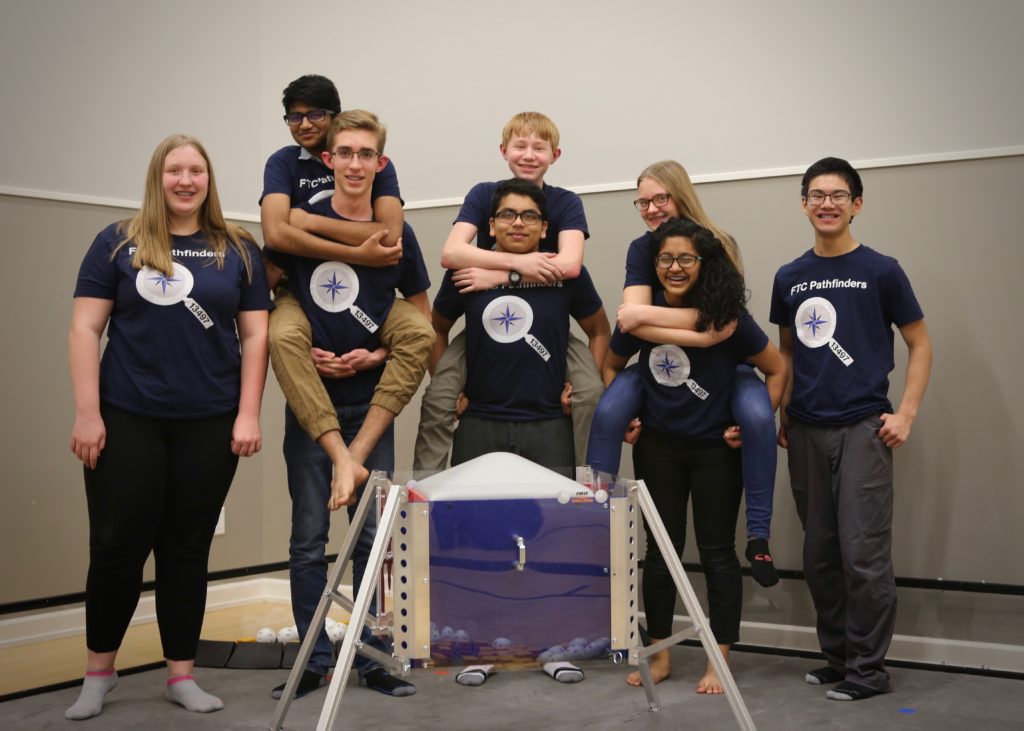The FIRST Tech Challenge Pathfinders
It’s a Friday evening, and we’re gathered in the basement of Owen Scott’s home. He’s one of eight members of the FTC (FIRST Tech Challenge) Pathfinders, an award-winning robotics club in Waukee. (FIRST stands for “For Inspiration and Recognition of Science and Technology” and is the parent organization of robotics clubs across the nation.)
We’re there for their weekly meeting. Scott and his teammates—a nearly equal mix of boys and girls—are eighth and ninth graders in the district.
The kids are huddled together on the couch as their coach, Shannon Stone, mother to team member Kristen Stone, and mentor Bhooshan Karnik, father to team member Arya Karnik, watch the students respond to my list of questions.
In addition to Arya, Owen and Kristen, Sabarish Mogallapalli, Shriya Magatapalli, Sean Eastman, Katie Morrison and Ben Avilez make up the FTC Pathfinders.
Behind the couch, there’s a large matted area known as “the field.” It’s where they’re fine-tuning their robotics project for an upcoming competition in Sioux City.
The FTC Pathfinders—named after NASA’s Mars Voyager—are one of seven robotics teams in the district.
“There’s also the STEM Punks, Enginerds, WaukeeTaukee, System Overlords, Circuit Breakers and ICE,” the students chime in.
They walk me through a typical meeting.
First, they begin by reflecting. Each student shares what they accomplished at the last meeting, what they hope to accomplish at this meeting, barriers to reaching their goals and how they can help each other overcome those barriers.
Next, they divvy up duties. Some work on finance and others on the engineering notebook—a record of everything they do throughout the season, including team activities that occur both in and outside Owen’s basement.
And, of course, they work on their robot.
“Each year, we’re given tasks and awarded point values for completing them. We design part of the robot to complete those tasks,” says Kristen.
The students are given a FIRST manual to follow, and they’re awarded points for whatever tasks their robot is able to do from that manual. The theme this year is space. The students and I walk over to the field to watch the robot in action.
There’s a red and white lander in the middle of the field. It looks like a miniature version of something you might see in a space exhibition. The robot lifts and lowers itself on and off the lander. Two corners of the square field are taped off, acting as storage depots for the “minerals” scattered around. The other two corners act as craters. One of the robot’s tasks is to pick up the minerals from the crater and deposit them in specific spots on the lander.
Most team members got their start in an FLL (FIRST Lego League) geared toward fourth through eighth graders. The FTC teams are for students in seventh through twelfth grade.
During their first season together (2014- 15), there were just two members from the current team. Together, they advanced to the state competition. As others joined, the Pathfinders’ success continued.
One of their most notable projects is an app called “City Recycle Day,” created with input from MetroWest Authority. It lists important dates for taking out trash and recycling receptacles.
In the spring of 2016, the team entered the app in the Verizon App Challenge. They won “Best in State.” They then submitted it to the Congressional App Challenge. They won that, too, and presented the app to members of Congress at the United States Capitol.
This spring, they’re headed back to Washington D.C. after winning with their latest submission, “FastLane,” which notifies parents and students about district bus schedules and delays.
While there, they’ll present to state representatives and attend talks by tech giants and innovators like Amazon, Microsoft, Southwest and Boeing.
Both apps have a community focus—something incredibly important to the Pathfinders. Outside of their meetings, the students spend time networking with teachers, visiting elementary schools across the district and making connections with local businesses.
Out of curiosity, I ask the team which subjects they’re thinking about studying after graduation.
This seems like a group that might know. They answer without hesitation.
“Aeronautical engineering,” says one.
“Biomedical or chemical engineering,” says another.
“Medical research.”
“Software engineer.”
It is evident I am far from the smartest person in the room. I am impressed with how, at such a young age, these students have already found a career path they love. For many, it’s all they’ve known.
“STEM is my life,” says Karnik.
Like many in the group, both of his parents work in the field.
“All the people I look up to are in STEM,” says Katie. “That’s where everything is headed. There’s so much you can do in it.”
Stone adds, “There is a significant shortage of engineers. It’s really important we prepare ourselves for the future. We have to keep evolving with the world.”
It’s obvious that their coach, Shannon, is proud.
“The team is just a great bunch to be around. They amaze me. They face a lot of challenges, whether it be tech or otherwise, and they always keep a positive attitude and support each other. They keep marching forward,” she gushes.
Not only do the Pathfinders get to practice their STEM skills in robotics club, they also work on fundraising and acquiring sponsorships, public speaking and presentation skills.
“We’re in a lot of situations where we’re talking to people about our team or projects—from judges, business owners and kids. So, we learn confidence and how to improve our speaking skills. We also learn time management and how to prioritize doing multiple things and meeting deadlines,” says Arya.
They also learn about a concept called “gracious professionalism,” a hallmark of the many virtues FIRST promotes. It’s the idea that despite their competition, teams should collaborate, learn from one another and help each other whenever possible.
“It’s just like good sportsmanship, whether you win or lose, you’re respectful and kind to those around you. That gets returned to you later when others are willing to help out,” says Katie.
The students are regular visitors in the Waukee elementary schools, where they participate in interest groups to discuss the club with prospective team members. They say teachers are their best advocates for recruiting future FLL or FTC students.
For information on joining a robotics club, visit firstinspires.org or reach out to the Pathfinders at pathfinders13497@gmail.com or email Jeff Longman, Director of Community Education at Waukee Community School District, at jlongman@waukeeschools.org.
